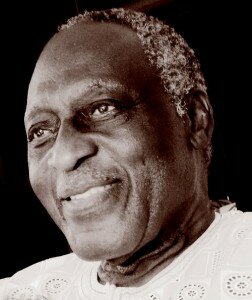Although I am a new admirer of Kofi Awoonor and his poetry, I have been deeply saddened by the loss to the world that his tragic death has brought. From the small state of Rhode Island in the United States, I share the sadness of losing such a man.
It is ever more poignant that the loss of such a great man came while he was attending the Storymoja, a peaceful gathering to celebrate life and what literature can bring to it. The circumstances of Prof. Awoonor’s life and death make it ever more incumbent that we, here in the United States, there in Africa, everywhere and anywhere, devote our lives to the celebration of LIFE and the ending of hatred and violence.
Thank you, Kofi Awoonor for your life – it has made living so much more meaningful to all of us.
Sincerely and with deep sadness,
Jay Miller
Former Judge
Adjunct Professor of Law
Newport, R.I., U.S.A.

